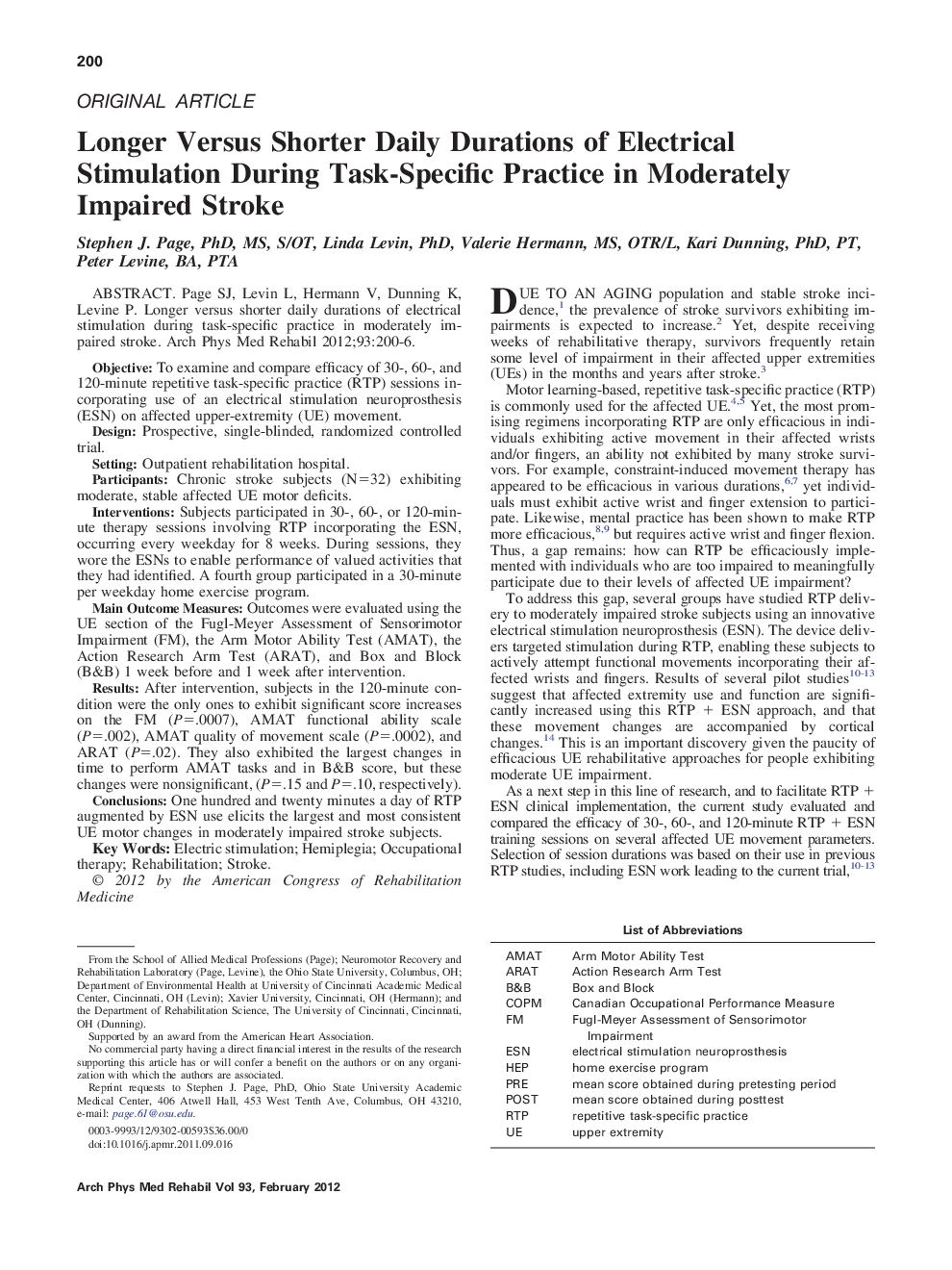| Article ID | Journal | Published Year | Pages | File Type |
|---|---|---|---|---|
| 3449704 | Archives of Physical Medicine and Rehabilitation | 2012 | 7 Pages |
Page SJ, Levin L, Hermann V, Dunning K, Levine P. Longer versus shorter daily durations of electrical stimulation during task-specific practice in moderately impaired stroke.ObjectiveTo examine and compare efficacy of 30-, 60-, and 120-minute repetitive task-specific practice (RTP) sessions incorporating use of an electrical stimulation neuroprosthesis (ESN) on affected upper-extremity (UE) movement.DesignProspective, single-blinded, randomized controlled trial.SettingOutpatient rehabilitation hospital.ParticipantsChronic stroke subjects (N=32) exhibiting moderate, stable affected UE motor deficits.InterventionsSubjects participated in 30-, 60-, or 120-minute therapy sessions involving RTP incorporating the ESN, occurring every weekday for 8 weeks. During sessions, they wore the ESNs to enable performance of valued activities that they had identified. A fourth group participated in a 30-minute per weekday home exercise program.Main Outcome MeasuresOutcomes were evaluated using the UE section of the Fugl-Meyer Assessment of Sensorimotor Impairment (FM), the Arm Motor Ability Test (AMAT), the Action Research Arm Test (ARAT), and Box and Block (B&B) 1 week before and 1 week after intervention.ResultsAfter intervention, subjects in the 120-minute condition were the only ones to exhibit significant score increases on the FM (P=.0007), AMAT functional ability scale (P=.002), AMAT quality of movement scale (P=.0002), and ARAT (P=.02). They also exhibited the largest changes in time to perform AMAT tasks and in B&B score, but these changes were nonsignificant, (P=.15 and P=.10, respectively).ConclusionsOne hundred and twenty minutes a day of RTP augmented by ESN use elicits the largest and most consistent UE motor changes in moderately impaired stroke subjects.
